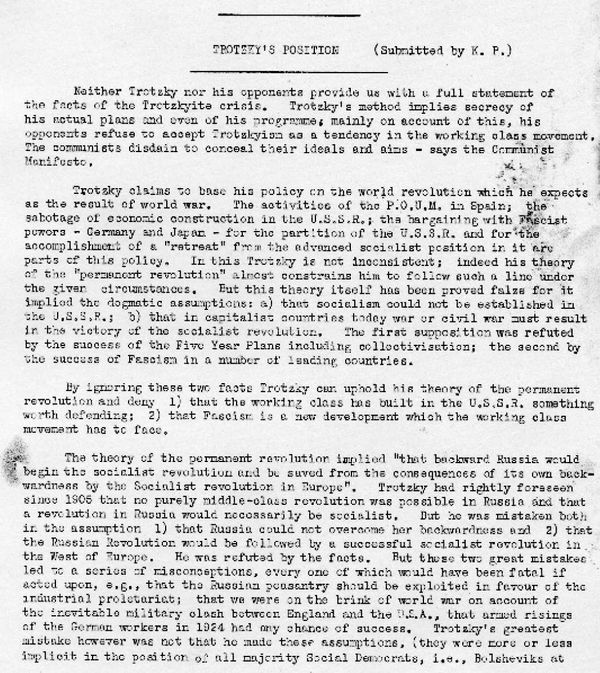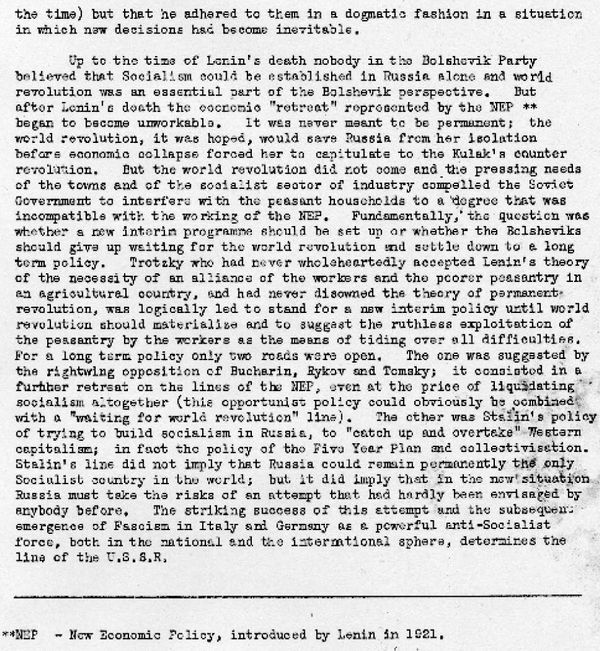Trotsky's Position

[4] Neither Trotzky nor his opponents provide us with a full statement of the facts of the Trotzkyite crisis. Trotzky's method implies secrecy of his actual plans and even of his programme, mainly on account of this, his opponents refuse to accept Trotzkysm as a tendency in the working class movement. […]
Trotzky claims to base his policy on the world revolution which he expects as the result of world war. The activities of the P.O.U.M. in Spain; the sabotage of economic construction in the U.S.S.R.; […]
By ignoring these two facts Trotzky can uphold his theory of the permanent revolution and deny 1) that the working class has built in the U.S.S.R. something worth defending; 2) that Fascism is a new development which the working class movement has to face.
The theory of the permanent revolution implied “that backward Russia would begin the socialist revolution … […]
[5] the time) but that he adhered to them in a dogmatic fashion in a situation in which new decisions had become inevitable.
Up to the time of Lenin's death nobody in the Bolshevik Party believed that Socialism could be established in Russia alone and world revolution was an essential part of the Bolshevik perspective. But after Lenin's death the economic "retreat" represented by the NEP** began to become unworkable. It was never meant to be permanent; the world revolution, it was hoped, would have Russia from her isolation before economic collapse forced her to capitulate to the Kulak's counter revolution. But the world revolution did not come and the pressing needs of the towns and of the socialist sector of industry compelled the Soviet Government to interfere with the peasant households to a degree that was whether a new interim programme

Document Informations
Reference:
Publication: Summary of discussions and a Draft Statement by a Christian Left Group, December 4th and 5th and May, 1938.
KPA: 20/11, 4-5

